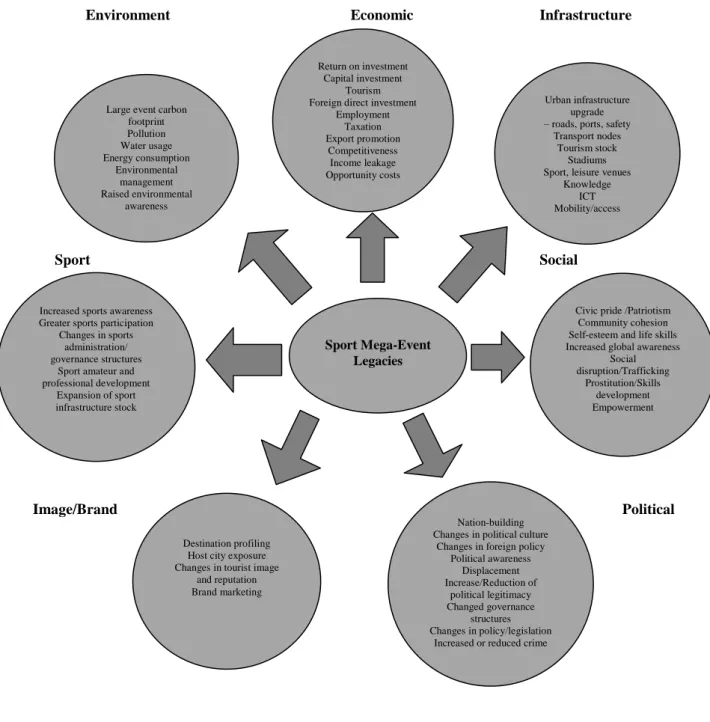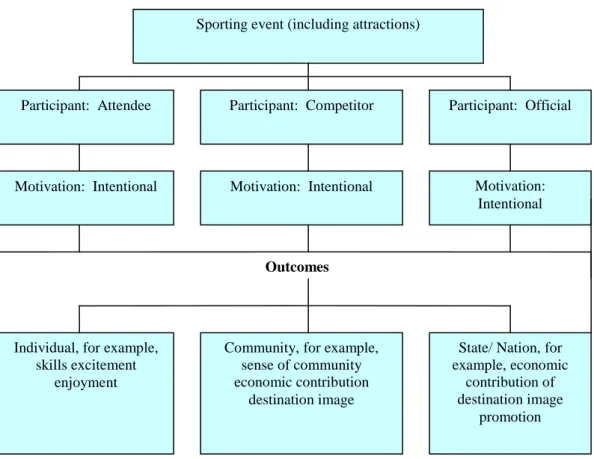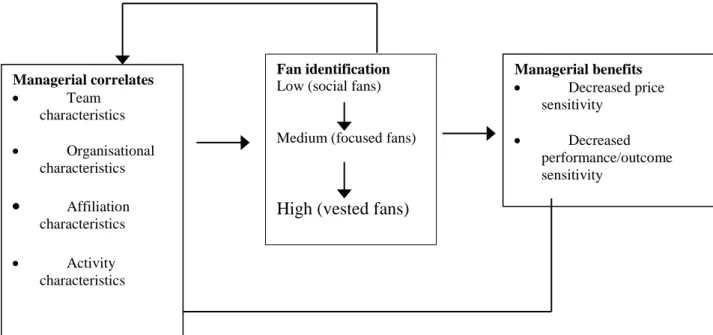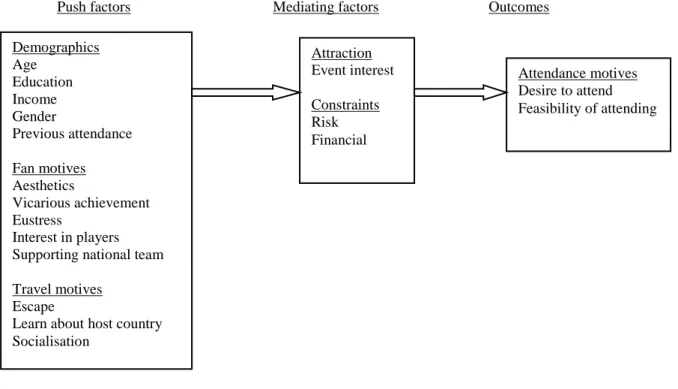The study revealed strong support for South Africa's hosting of the 2010 FIFA World Cup in both countries, largely due to Africanism. 187 5.6 Level of support for hosting the 2010 FIFA World Cup in South Africa 200 5.7 Understanding what constitutes a 'mega-event legacy' 207 5.8 Awareness and perception of 'African legacy' aims and.
Preamble
Many of the impacts are associated with long-term legacies that continue after hosting the event. However, none of the events can be compared to the Fédération Internationale dé Football Association (FIFA) World Cup (which was held between the months of June and July 2010) in terms of its size and scope.
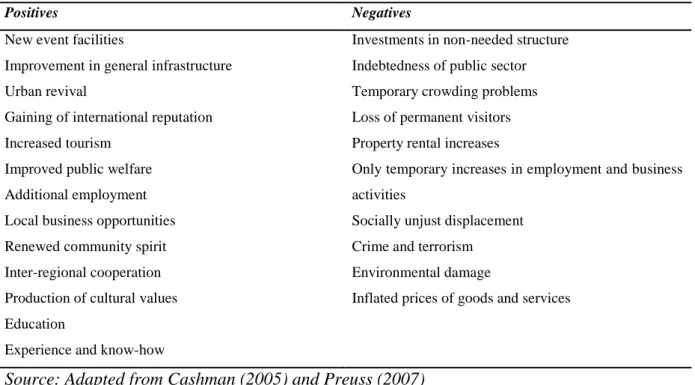
Significance of the study
The results provide the basis for rethinking theoretical constructs and contribute to the reconceptualization of legacy effects in relation to mega-events. The fact that South Africa is hosting the first mega-event on the continent and the country is positioning the event as an 'African World Cup' (giving it a continental orientation) certainly provides a unique opportunity to undertake research in this area.
Aim of the study
Research objectives
To assess whether Cameroon and Nigeria planned to derive legacy benefits from South Africa's hosting of the 2010 FIFA World Cup and, if so, what these were and whether they were realised. To evaluate stakeholders' perceptions of the legacy impacts of the 2010 FIFA World Cup in Cameroon and Nigeria.
Scope and limitations of the study
To critically examine whether the African legacy component of hosting Africa's first mega-event has been achieved.
Thesis chapter outline
The aim is to investigate and reveal existing gaps that require further investigation and relate them to the current research objectives outlined in the first chapter of the study. It highlights the contribution made by the study to the legacy of mega-events, particularly in the context of South Africa's hosting of the 2010 FIFA World Cup on the African continent, highlighting the challenges identified and proposing recommendations for areas requiring further research.
Conclusion
South Africa's hosting of the FIFA World Cup in 2010 was significant, as it was the first time such an event was hosted on the African continent. Furthermore, as previously mentioned, no empirically based study has yet examined legacy benefits to the extent of the present study.
Introduction
This chapter develops a conceptual framework for studying the African legacies of the 2010 FIFA World Cup in Cameroon and Nigeria. Three existing theories are applied to the current research focus to show how the study is conceptualized.
Political economy theory
South Africa's hosting of the 2010 FIFA World Cup is embedded in the global political economy of sport. This is why the 2010 bid was presented as an effort to improve the African continent.
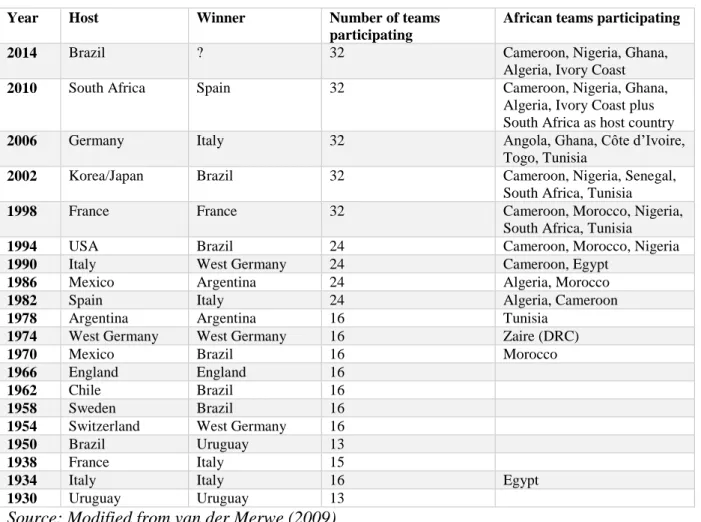
Mega-event legacy
At the heart of the legacy controversy is the issue of proper planning before mega-events are organised. Such reasons were important in the case of South Africa hosting the 2010 FIFA World Cup.
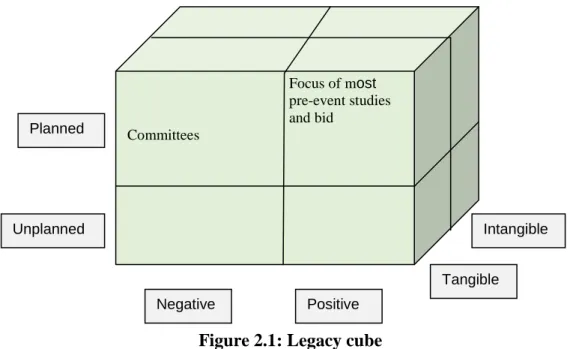
Stakeholder theory
Paying careful attention to the interests and well-being of those who can help or hinder the achievement of the organization's goals is the central guideline of the theory (Phillips et al., 2003). Furthermore, by taking such an approach, it was possible to determine whether the expectations of such stakeholder groups as football fans were met in terms of the legacy benefits associated with the event.
Conclusion
Although different, the three theories (political economy, mega-event legacy and stakeholder theory) were used to highlight the relevance of examining stakeholders' perceptions of the legacy impacts linked to mega-event hosting. The next chapter presents the literature review with specific focus on sports fans and mega-event legacy impacts.
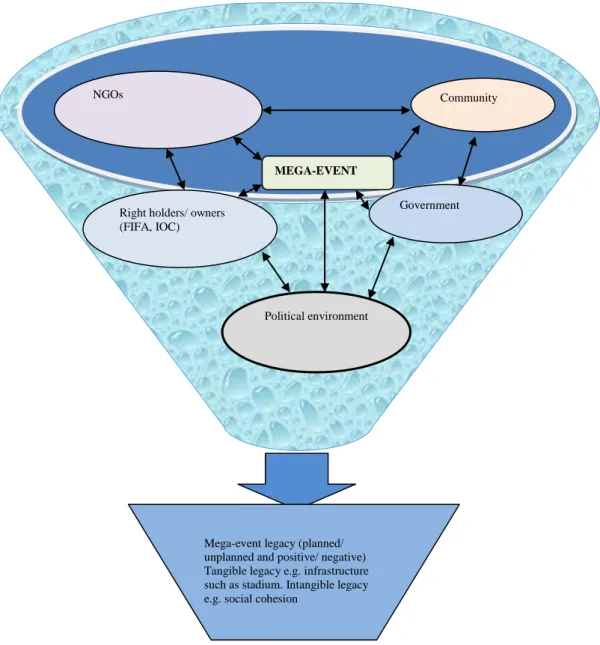
Introduction
The nature of the relationship between sport, tourism and events
Various researchers in the field of sports tourism have put forward different definitions of the concept of sports tourism. These benefits may vary depending on the importance, size and scale of the event.
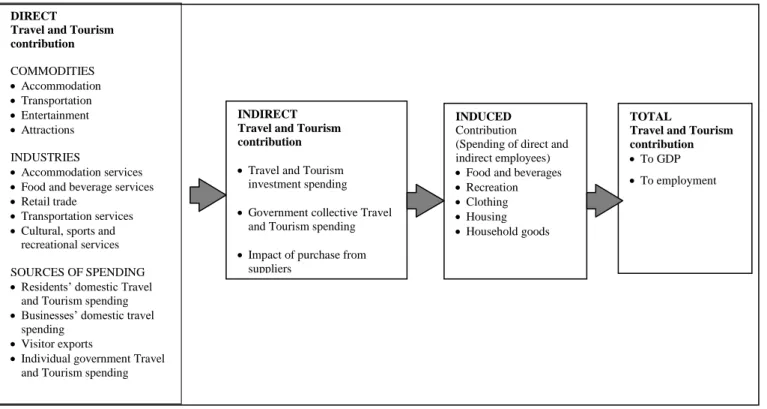
Typology and identification of sport fans
In discussions about the classification of sports fans, some studies have also acknowledged the existence of occasional sports fans. According to Zhang et al. 2001), the degree of identification felt with the team elicits a comparative degree of positive expectancy and confidence in the team's performance.
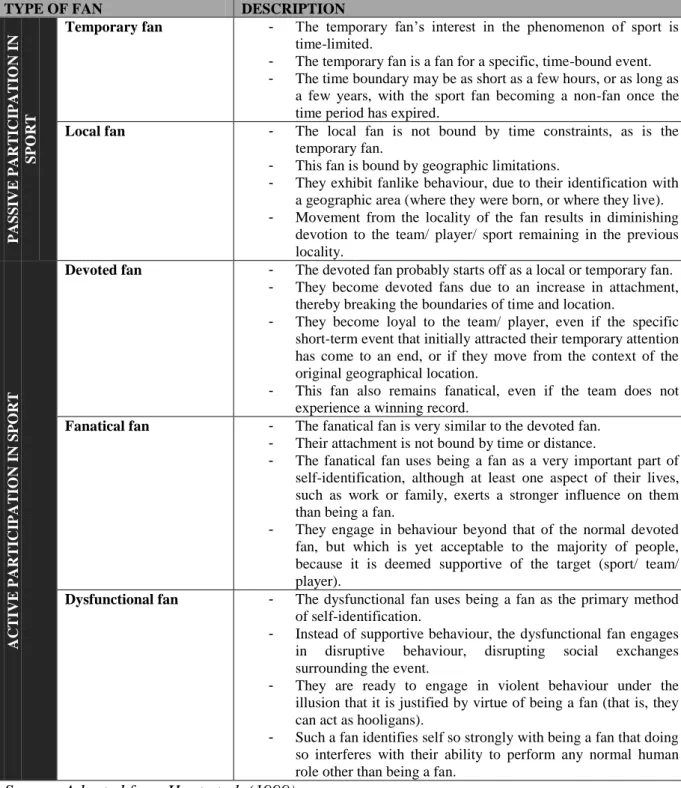
The profiles of sport tourist fans
Furthermore, such fans only begin to take an interest in the game of football when the FIFA World Cup begins, and they will most likely watch fewer than ten matches during the duration of the tournament. 2008) further found that the second type of FIFA World Cup fan had an average interest in football. The authors argue that such fans are likely to watch non-live broadcasts of the matches, while also being interested in matches played by national teams other than their own.
Fans’ travel motives, constraints, expectations and attendance at mega-events
According to Smith and Stewart (2007), motivational differences are also a consequence of the environment in which an event takes place. According to Smith and Stewart, traveling fans and soccer tourists are influenced by the proximity of the game when deciding whether or not to attend a particular game.
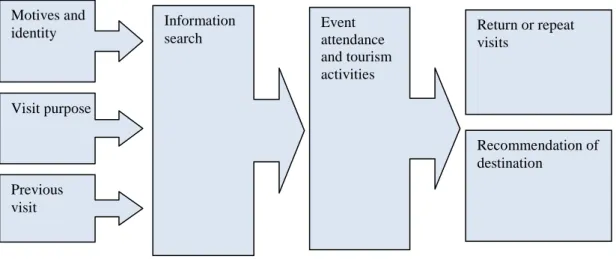
Mega-event impacts
The costs associated with hosting the 2010 FIFA World Cup were not expected to yield a net income. Tichaawa and Bama (2012) conducted a post-2010 FIFA World Cup survey of Green Point residents' perceptions of the event.
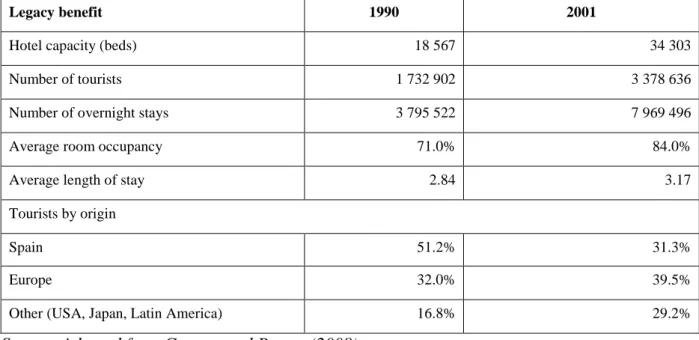
The significance and process of planning for legacies
In addition, the launch of a mega-event creates emotions and influences the image of the host country/city. Four of these – infrastructure, knowledge and experience, networks and culture – develop almost as a matter of course, although event preparation, emotion and image depend on the momentum the event develops.
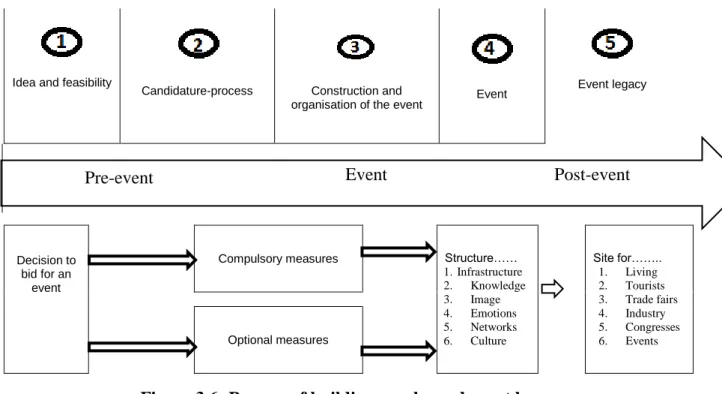
The 2010 FIFA World Cup African Legacy Programme objectives
Thus, the 8th Meeting of the Heads of State and Government of the AU reaffirmed its commitment to be fully and substantively involved in the preparations leading up to the hosting of the 2010 FIFA World Cup. It was expected that the hosting of the 2010 FIFA World Cup would be a would have a significant impact on raising awareness of the environmental issues that affected the lives of all those living on the African continent (Department of Sport and Recreation, 2008).
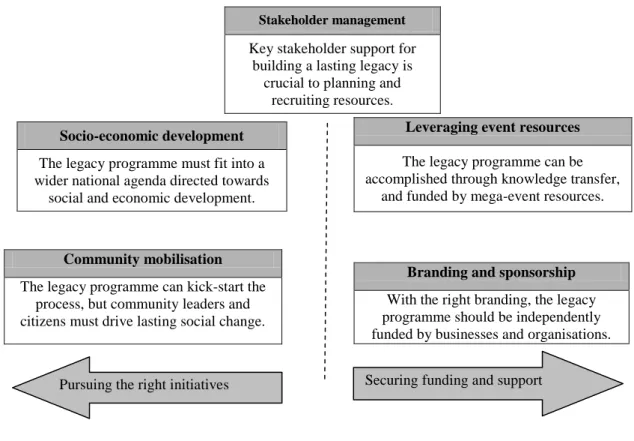
Leveraging mega-event legacy impacts
However, Chalip and McGuirty (2004) point out that mega-event organizers should market the event along with the range of attractions that the host destination offers to the potential event tourist. In the context of the 2010 FIFA World Cup, the expansion of the event to the whole of the African continent was the main driver for obtaining a bid for the event (Cornelissen, 2010a; 2010b) and for mobilizing support across the continent (Desai and Vahed, 2010). ; Maharaj, 2011; Ndlovu, 2010) for the event.
The importance of measuring stakeholder perceptions of mega-events
Such facilities are often used as justification for the expenses associated with hosting the mega-events. For these reasons, as Kim and Petrick (2005) and Prayag et al. 2013) note that many sporting mega-events tend to disregard residents' perceptions of the event's social and cultural impacts.
Frameworks for evaluating mega-event legacy impacts
Within this context, Jago et al. argue that “unfortunately the economic evaluation of mega-events often does not meet the 'state of the art' assessment standards”. It is noted that the place marketing benefits of the event influence the key sectors of the destination.
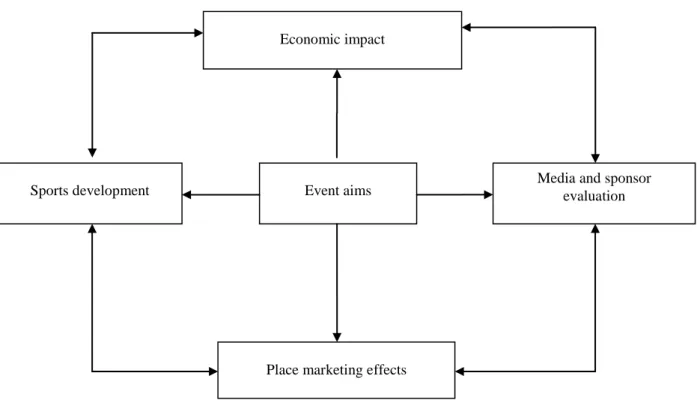
Sustainable development and sport events
The mega-event should be seen as a milestone and not as an end goal in itself. Integration for sustainability can only be achieved through the specific contribution and shared responsibility of each sector.
Conclusion
The following chapter explains in detail the research processes and procedures that were used in collecting data from football fans and relevant stakeholders in Cameroon and Nigeria.
Introduction
Research questions
What are the successful components of the 'African Legacy' program linked to the 2010 FIFA World Cup. What are the attitudes and perceptions of mega event stakeholders in Cameroon and Nigeria regarding the legacy implications of South Africa hosting Africa's first ever FIFA World Cup.
Background to study areas
As in the case of Cameroon, despite the potential and current performance of the tourism sector in Nigeria, there are still several challenges hampering its effectiveness. According to Saavedra (2003), one of the recent success stories of football in Nigeria has been the growth and progress of women's football.
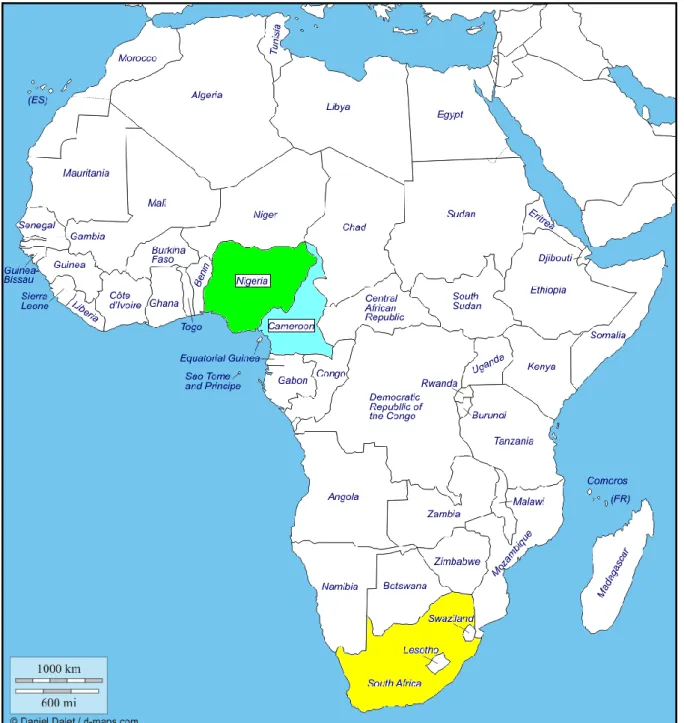
Research design, approach and techniques
In addition, other local field workers were appointed in both case study areas and were trained in the content of the questionnaire and the procedure of its administration. Football officials including match referees, administrators, club presidents and owners of FECAFOOT and Nigeria Football Association (NFA) were interviewed.
Research data collection instruments
The pilot findings identified small gray areas or gaps that had been addressed prior to fieldwork. A cover letter describing the purpose of the study was also prepared and attached to the questionnaire (see Appendices A and B).
Fieldwork experience
Data analysis
In the current study, where multiple responses were received based on the open-ended questions, the data was presented as a percentage of respondents who provided individual responses, which could therefore add up to more than 100%. The qualitative data was analyzed into conceptual categories, in terms of the constant comparative methodology.
Conclusion
The results were then compared between the two case study areas and stakeholder groups. The data analysis and subsequent discussion formed the basis for the conclusions and recommendations presented in the final chapter of the study, based on the predefined research objectives outlined in the first chapter.
Introduction
Study sample
Demographic characteristics of the sample
The majority of respondents (28.5% from Cameroon and 41.5% from Nigeria) said they had obtained an undergraduate degree. A few of the respondents were either retired or on pension (4.9% from Cameroon and 1.3% from Nigeria).
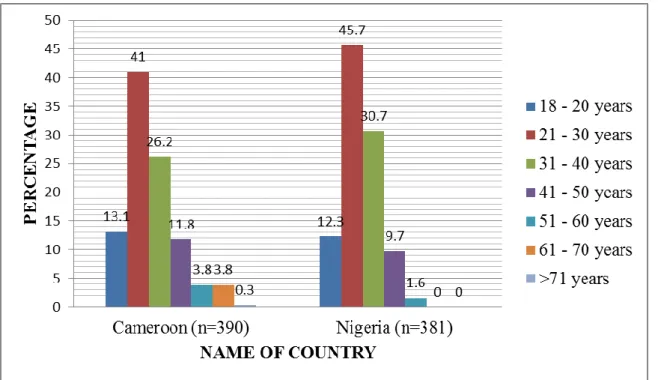
Background information on fan respondents’ interest in football
Few respondents indicated that they were not interested in local football (14.4% from Cameroon and 7.3% from Nigeria). The vast majority of respondents (91.8% from Cameroon and all from Nigeria) indicate that they have never traveled to an international football match.

